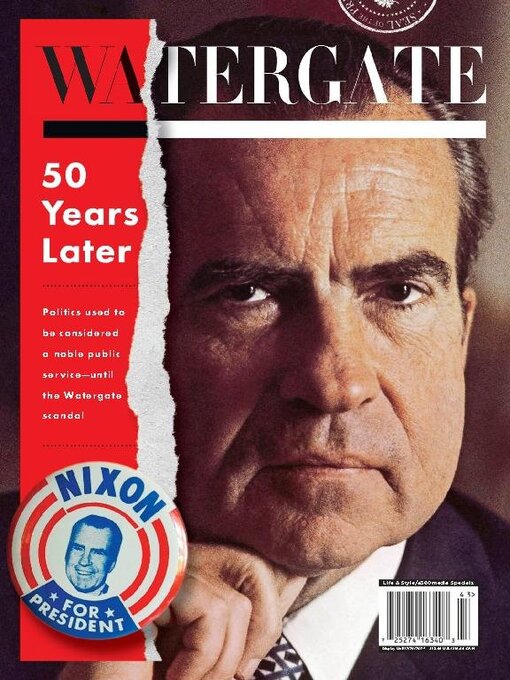As hard as it is to believe today, there was a time not so very long ago when most Americans were willing to give the benefit of doubt to the president of the United States. And the moment that broke this bond of goodwill can be traced to one man. Before Richard Milhous Nixon first took office in 1969, the U.S. presidency enjoyed a rather noble reputation. But during Nixon’s run for a second term, all that changed. In what became known simply as Watergate, several of the president’s men were caught breaking into the Democratic National Committee headquarters, located in the Watergate complex in Washington, D.C., kicking off a tsunami of revelations that exposed the Nixon administration as the backbone of multiple interlocking scandals. This break-in, along with an aggressive cover-up led by the president himself, forced the public to confront messy truths about the fight to win and maintain power in America. Nixon’s most famous quote regarding Watergate was “I am not a crook.” But his more troubling comment came during a televised interview with British journalist David Frost years later: “When the president does it, that means that it is not illegal.” The country has lived with the echoes of that statement for 50 years.
“I Am Not a Crook” • Politics was once considered a noble public service—until the Watergate scandal
Dirty Deeds • A brief history of White House scandals before Watergate
Number 37 • How Richard M. Nixon became president of the United States
Campaign Intelligence • An infamous team was assembled to help reelect the president
Trouble on Six • The break-in that kickstarted Watergate was a bumbling, bungled affair
What Did Nixon Know? • The more the president tried to distance himself from Watergate, the worse it became
Woodward and Bernstein • Two reporters cracked the Watergate story, shedding light on the dirty side of politics
Follow the Money • For decades, the key Watergate whistleblower was known by a code name he hated
Justice Is Served • As Nixon desperately tried to distance himself from scandal, the White House fell apart
Innocence Lost • Watergate forever altered how Americans feel about elected public officials
Watergate - 50 Years Later
PHOTO CREDITS
Watergate • 50 Years Later
